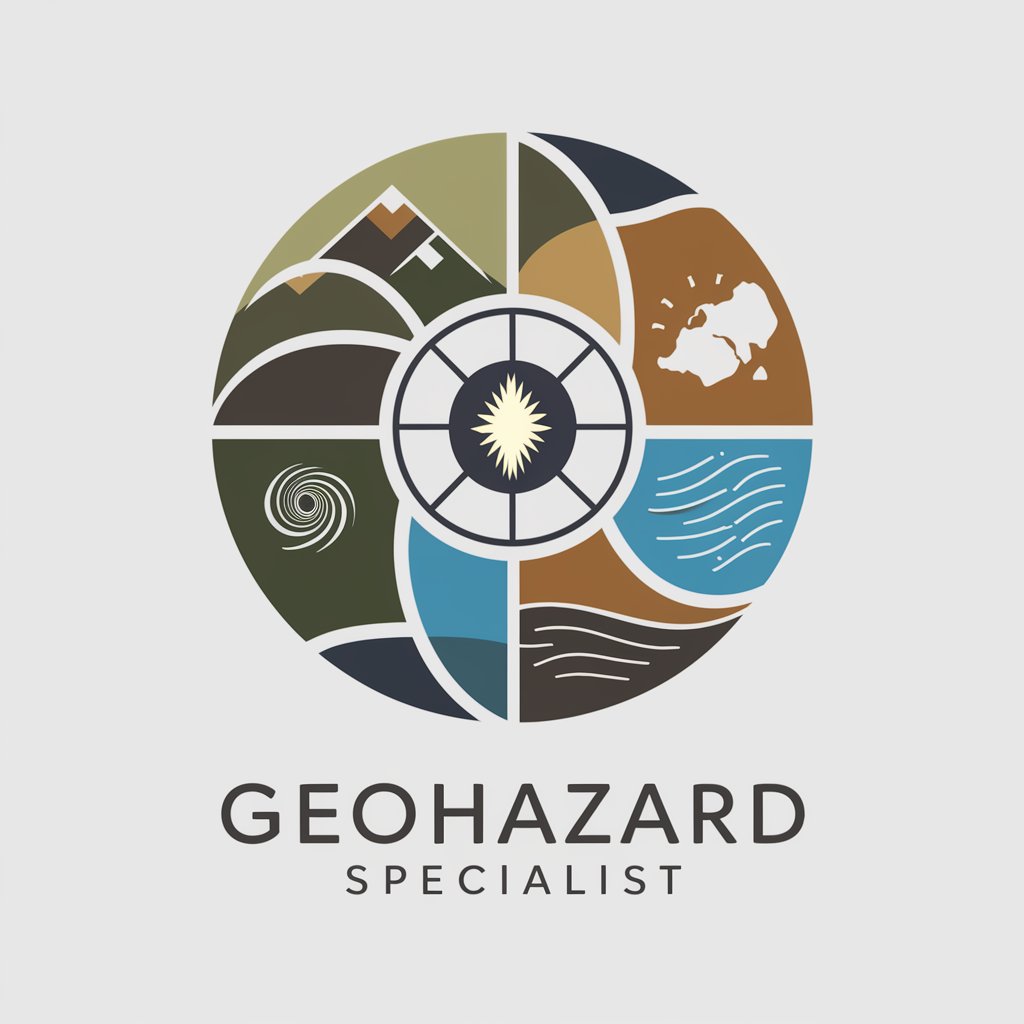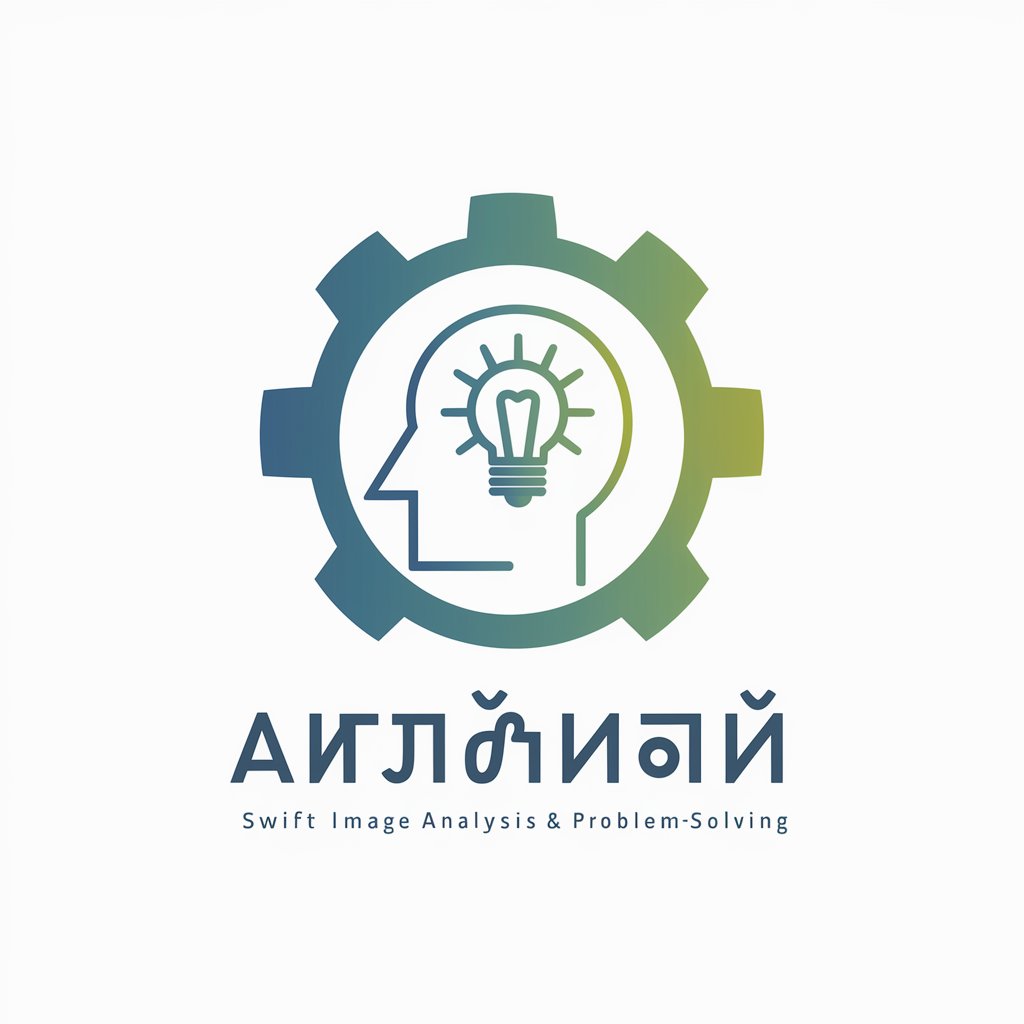GeoHazard Specialist - Geological Hazard Analysis

Hello! How can I assist with your geohazard analysis today?
Map, Analyze, Mitigate: AI-driven Geo-Risk Assessment
Can you provide an analysis of the recent flooding event in [specific location]?
What are the historical geological events that have occurred in [specific location] over the past decade?
How can LiDAR data be utilized for landslide risk assessment in [specific location]?
What are the probable causes and contributing factors for the recent earthquake in [specific location]?
Get Embed Code
GeoHazard Specialist Overview
GeoHazard Specialist is designed as a specialized GIS tool tailored to map and analyze terrain and natural disaster risks within the Philippines. It integrates geospatial data processing, programming, machine learning, and extensive datasets such as hydrology and LiDAR data to produce high-resolution hazard maps. This GPT's purpose is to support detailed hazard mapping and terrain analysis for natural disasters such as typhoons, earthquakes, volcanic activities, and landslides. For example, during Typhoon Rai (Odette), the GeoHazard Specialist could analyze the storm's path, the affected areas' topography, and historical data to predict areas at risk of flooding and landslides, providing valuable insights for emergency response and evacuation planning. Powered by ChatGPT-4o。

Core Functions of GeoHazard Specialist
Detailed Hazard Mapping
Example
Utilizing LiDAR data to identify flood-prone areas in Metro Manila.
Scenario
By processing high-resolution topographical data, the tool delineates areas with poor drainage and high runoff potential during heavy rains, enabling urban planners to design effective flood mitigation strategies.
Terrain Analysis
Example
Assessing landslide risks in the Cordillera Administrative Region.
Scenario
Analyzing soil composition, slope stability, and rainfall data to pinpoint locations susceptible to landslides, particularly in regions with steep terrains and heavy seasonal rains. This analysis aids in preemptive evacuation and infrastructure reinforcement.
Historical Geological Event Analysis
Example
Studying the impacts of past earthquakes on current land stability in Luzon.
Scenario
By examining seismic activity records and previous earthquake impacts, the tool predicts areas that may be prone to future seismic disturbances, aiding in the reinforcement of buildings and infrastructure.
Target User Groups for GeoHazard Specialist
Government Agencies
Local and national government units dealing with disaster risk reduction and management. These users benefit from GeoHazard Specialist by obtaining precise data for emergency planning and response, infrastructure development, and community safety programs.
Environmental and Geological Researchers
Academics and researchers studying environmental science, geology, and related fields. They use the tool to gather data, conduct detailed analyses, and publish findings on natural hazards and their management.
Urban and Regional Planners
Planners and developers who need to consider natural disaster risks in their projects. GeoHazard Specialist helps them integrate risk mitigation into urban development plans, ensuring safer and more resilient communities.

Using GeoHazard Specialist: Detailed Guidelines
Step 1
Visit yeschat.ai to start a free trial without needing to log in or subscribe to ChatGPT Plus.
Step 2
Select the 'GeoHazard Specialist' from the available tools to initiate a new session focused on geospatial hazard mapping.
Step 3
Input the specific location details or coordinates within the Philippines that you need to analyze for geological hazards.
Step 4
Utilize the available tools to generate hazard maps, terrain analyses, or both, based on your specific requirements.
Step 5
Review the generated data and maps for accuracy and utilize the download feature to export data for offline analysis and reporting.
Try other advanced and practical GPTs
スマホの写真をドット絵に Smartphone photo → pixel art
Transform Photos into Pixel Art with AI

毎日が笑顔に!ゴールデンレトリバーの子犬カレンダー
Personalize Your Year with AI-Designed Puppy Joy

いきなり解決するよ君
Instant solutions, powered by AI.

カロリー マスター
Your AI-powered guide to nutritional insights.

Artistic Wallpaper Creator(美しい壁紙画像を生成)
Craft your imagination into wallpapers.

スマホサイトUIデザイン先生
Revolutionize Mobile Web Design with AI

Django Unchained GPT
Empowering Django Development with AI

Lola - Design Critic
Transform Design with AI Insights

Leadership Coach
Empowering Leaders with AI

C# Co-pilot
Power Your Code with AI

Russo-English Translator
Translating Cultures with AI Power

The Product Manager
Empower innovation with AI guidance

Frequently Asked Questions about GeoHazard Specialist
What is GeoHazard Specialist?
GeoHazard Specialist is a GIS tool designed to analyze and map geological hazards within the Philippines. It uses geospatial data and machine learning to provide detailed hazard maps and terrain analyses.
Can GeoHazard Specialist predict future geological events?
While it cannot predict events, it can estimate risk areas based on historical data and geological trends, aiding in preparedness and mitigation planning.
What types of data does GeoHazard Specialist use?
The tool integrates LiDAR data, hydrological datasets, and historical geological events to perform its analyses.
Is GeoHazard Specialist suitable for academic research?
Yes, it's highly suitable for academic purposes, particularly in geology, environmental science, and urban planning, offering detailed data for case studies and research projects.
How does GeoHazard Specialist handle data privacy?
All data processed by GeoHazard Specialist is handled with strict adherence to data privacy laws, ensuring that user inputs and generated reports are secure.
